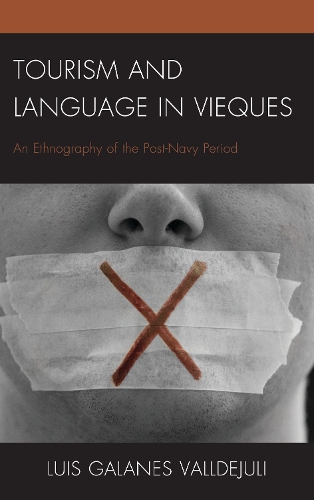
Tourism and Language in Vieques: An Ethnography of the Post-Navy Period
(Paperback)
Available Formats
Publishing Details
Tourism and Language in Vieques: An Ethnography of the Post-Navy Period
By (Author) Luis Galanes Valldejuli
Bloomsbury Publishing PLC
Lexington Books
11th February 2020
United States
Classifications
Professional and Scholarly
Non Fiction
History of the Americas
972.959
Physical Properties
Paperback
178
Width 154mm, Height 224mm, Spine 13mm
277g
Description
After more than sixty years of occupation by the U.S. Navy and intensive community struggles, the Puerto Rican island of Vieques was finally returned to civilian control in 2003. But, as this book documents, the Viequenses struggles were far form over after the departure of the Navy. The Viequenses were left to contend with the devastating effects of sixty-two years of bombing; the environment and health of the population had been severely harmed. Yet this was a minor issue in comparison to the effects of the newly instated tourism industry on the island. Drawing from ethnographic research conducted between 2004 to 2016, Luis Galanes Valldejuli captures the larger social conflict derived from the arrival of tourists, who brought change to the island in the form of land speculation, work conflicts, racism, language barriers, and neoliberalism. A close observer of the Viequenses, Valldejuli details the deleterious effects of tourism on the voice of the Viequenses: they were no longer heard. This book is recommended for scholars of anthropology, tourism studies, linguistics, cultural geography, political science, and history.
Reviews
Tourism and Language in Vieques documents the unfolding interplay between development and language on a small island easily engulfed by the hegemonic service economy of tourism. The voice of the Viequenses is combative, yet strangely mock heroic and bound to remain misunderstood, and therefore not listened to. In his very readable book, anthropologist Luis Galanes Valldejuli ably portrays, through in-depth ethnographic research and thick descriptions, how the complex, the messy, the lived experiences of the Viequense defy essentialist representations. He does so in ways that acknowledge and remind us of the inherent, cultural, and dynamic complexity and diversity that shuns dualist categories. -- Godfrey Baldacchino, University of Malta
Tourism and Language in Vieques is a very sensitively and deliberately written ethnography on tourism, power, and language. Valldejuli has collected the utterances of Viequense subalterns who have been silenced in the face of tourism development not to 'give them voice,' but to reveal the mechanics of 'epistemic violence.' -- L. Kaifa Roland, University of Colorado-Boulder
The book tackles the difficult question of power relationships in a tourist economy and describes the ways in which viequense language and discourse is silenced within discussions on the islands political economy. This case is illustrative of the continuing contradictions at the heart of the US-Puerto Rico colonial relationship. Valldejuli offers provocative parallelisms between Vieques current predicament and the Caribbeans historical struggle with imperialism, which result in a situation where the viequenses are left with limited resources to develop their agency. * Islamic Studies *
Author Bio
Luis Galanes Valldejuli is professor of anthropology in the Department of Social Sciences at the University of Puerto Rico at Cayey.
